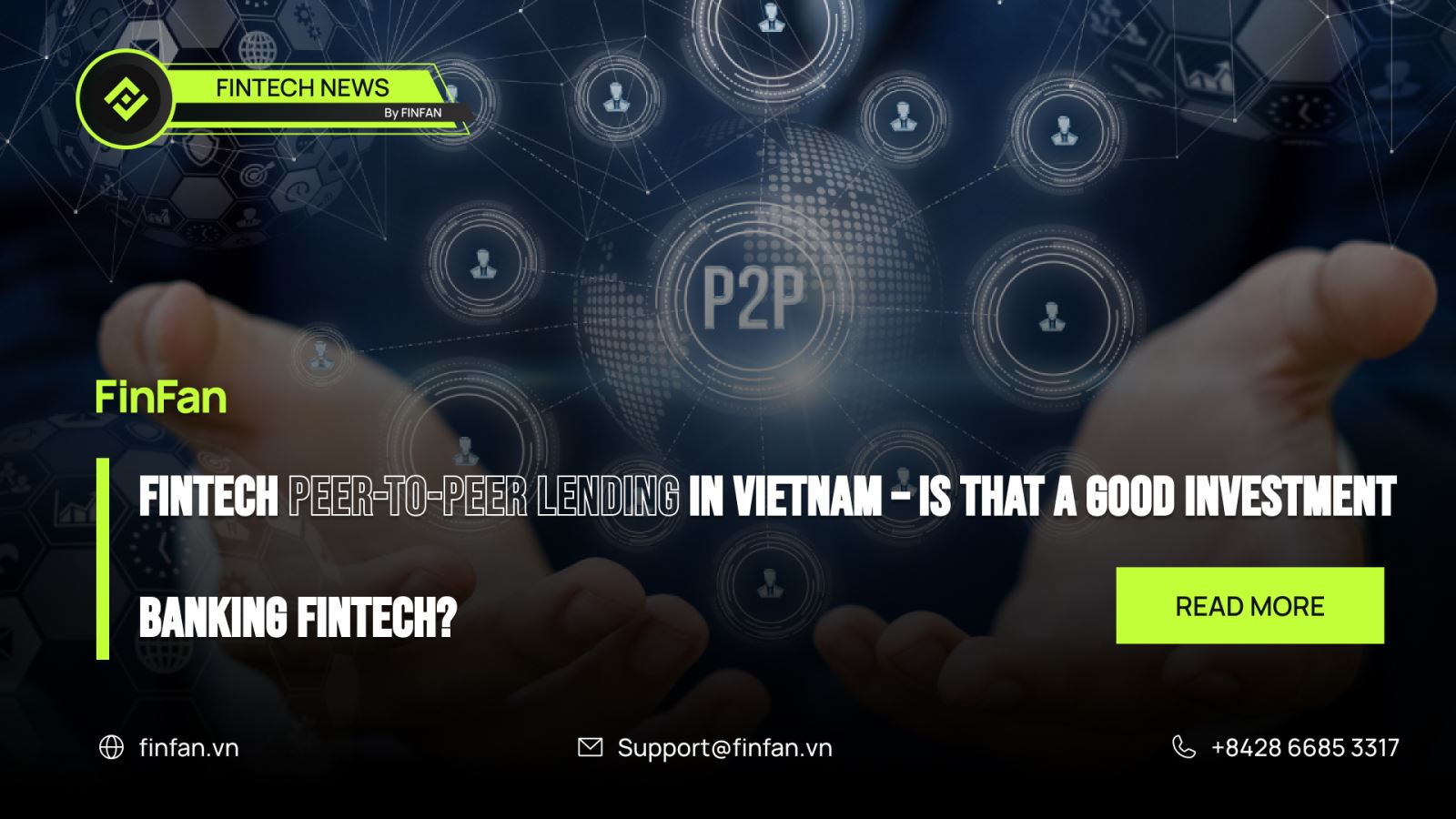Fintech peer-to-peer lending in Vietnam – Is that a good investment banking fintech?

Peer-to-peer lending has been evaluated as one of the potential development areas of fintech technology. However, this segment itself has too many problems and legal problems, causing many Vietnamese people to fall into the black credit trap along with a series of other violations.
Today, let's take a look at some of the troubles in this model with FinFan and decide if this is a model worth investing in for investment funds through this article.
Vietnamese peer-to-peer lending situation
After the F88 investigation, a fintech company in the field of online pawnbroking and unsecured lending has a nationwide scale. People increasingly lose faith in traditional lending companies with high interest rates and deliberately sell loans to black credit parties to make profit.
- Although there have been strong developments and obvious benefits, so far Vietnam has not had a specific legal regulation to create a framework for managing peer-to-peer lending. This causes problems with the identity and credit verification of both lenders and borrowers.
- Due to not carefully examining the borrower's bad debt information, the lender will very likely lose the money they have lent.
- In the opposite direction, the borrower also experiences the same problem when it is unclear if the lender is a reputable one or whether this is a case of black credit parties impersonating the lender.
- The lack of origin control for loan investment amounts by P2P lending enterprises makes it simple for organizations and individuals to use this channel for money laundering and tax evasion. multi-level, financing of terrorism...
- Lack of an effective legislative framework also results in restricted cooperation between peer-to-peer lenders and banks/financial institutions, making it challenging to develop and expand to meet the market. The deployment of the model to well-known app stores, particularly sizable platforms like the App Store, is also hampered by other issues.
Is fintech peer-to-peer lending a good investment banking fintech?
Fintech peer-to-peer lending will continue to be popular, at least for the next five years, as the regulatory environment for this form of lending becomes clearer and lenders and borrowers have citizen identification that provides more precise and trustworthy verification.
Venture capital funds should take heed of the following traits, though, in order to successfully engage in this sector at this time:
- Check the details of these companies' business registrations carefully to determine whether they are doing their operations under the cover of bad credit.
- The maximum interest rate that a company or person can borrow at the moment is 20% per year, or no more than 1.66% per month. If a peer-to-peer lending company permits its members to borrow money at a high-interest rate of 20% per year, investment funds should reevaluate the companies' validity before investing in other parts of fraud on black credit.
- View the company's current financial position. To enhance its charter capital, many financial and real estate businesses in Vietnam decide to offer a sizable number of bonds to the general public.
- This is entirely rational and promotes the growth of enterprises in the context of the expanding market economy. However, given that Vietnam is currently experiencing a terrible economic downturn as well, this approach of issuing bonds may be fatal to the same company when the time comes for repayment and there isn't enough money available.
- To determine whether the aforementioned startups are associated with the bank, look at their list of partners.
- Above all, when all actions of these companies will be regulated by the state bank and examined 1-2 times, the fact that a fintech business is affiliated with a bank will help to strengthen this company's reputation. several times. This increases investor confidence in the company's operations (at least for the next two years).
- To determine whether the aforementioned startups are associated with the bank, look at their list of partners.
- Look into the organization's connections to black credit parties. As was already noted, even if a financial organization has a license, it may hook up with or collaborate with black credit parties. Fintech peer-to-peer lending is by nature a very risky sector. Businesses in this industry run a very high danger of getting into legal trouble if they continue to work with black credit parties. Investors will thus make enormous gains in the initial stages, but later on, everything will be lost as a result of the CEO or founder of the aforementioned fintech firm being imprisoned.